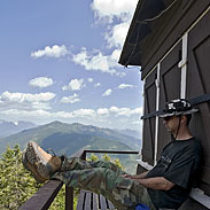Landscape Architecture for Landscape Architects › Forums › PORTFOLIO & RESUME › Technical Writing Examples for Job Applications
- This topic has 1 reply, 5 voices, and was last updated 11 years, 9 months ago by
 Wyatt Thompson, PLA.
Wyatt Thompson, PLA.
-
AuthorPosts
-
May 24, 2014 at 7:50 am #152650
 Ryoma TominagaParticipant
Ryoma TominagaParticipantHi Everyone,
This will be my first post since joining Land8 and hopefully I’ll be sent in the right direction.
I will be graduating 3 weeks from now and along my search for a position, I find a handful of firms requesting writing examples, which is completely understandable.
Where can I find examples, specifically “Technical Writing”, that is related to Landscape Architecture? What are these firms looking for? Where should I pay close attention to in order to develop strong material worthy of an application.
Thank You!
May 24, 2014 at 1:00 pm #152656 Wyatt Thompson, PLAParticipant
Wyatt Thompson, PLAParticipantDid you write a thesis or a major research paper? Did you ever take a Technical Writing class? Or a Professional Practice class where you learned how to write a proposal? I think any of those would suffice.
May 24, 2014 at 6:32 pm #152655 Ryoma TominagaParticipant
Ryoma TominagaParticipantYes, I have a major thesis paper and professional practice proposal writing under my belt. What I don’t have is experience taking a technical writing class. If the latter would suffice, then I believe I will be ok with using that material as part of my application.
Thanks for clearing that up!
May 24, 2014 at 7:33 pm #152654 Chris WhittedParticipant
Chris WhittedParticipantWhen I first graduated and was looking for writing samples, I pulled from a couple of sources depending on whether they gave any kind of example as to what they were looking for. I wrote a tech column for the campus paper one semester, had the pro-practice proposal Wyatt mentions, some narrative/description documentation from various projects (including ‘thesis’ which was really more a design capstone project than an actual research paper), and some tutorials I had written (with illustrations!) on how to do certain things in software. I think I pulled a couple things from my internship as well.
After that, once a ‘professional’, I’ve used more software tutorials, municipal review comment response letters, project summary documents (things used in municipal submitals to show how you meet or exceed their codes, plans, and policies), an experience/review/summary I wrote once after being the only person in the office to attend the ASLA annual meeting, and CAD standards I’ve developed, and some planning/landscape guidelines and documents we’d put together for cities as a contract project.
“Technical writing” can have some interpretation to it. One thing I never tried to use was specificiations, because so often they’re sort of just cut/paste/fill-in-the-blank. But something more hand-crafted and fully written would be pretty high on the list. The CAD standards and software tutorials are also good examples of true technical writing, as are submital documents, grant or project proposals, and other types of documents that have a common/set type of format that must be followed. A landscape review article, such as you might see in Landscape Architecture Magazine, is one that could go either way – it’s not technical writing in one sense, but at the same time if you’re focused on principles and jargon-type words and concepts (how it works as opposed to just descriptions/narratives of views and plant material) it could work. Heck, even a forum response like this one could be polished into a writing example.
In general what they’re looking for is that you can check your spelling and grammar; know how to form and explain an idea in a clear, understandable, and concise manner; have some concept of a ‘professional voice’ on paper; and perhaps are familiar with different styles of writing (communication, documentation, proposal, publication, etc.).
May 25, 2014 at 1:35 am #152653 Ryoma TominagaParticipant
Ryoma TominagaParticipantThat is great advice. Thanks for including your own process on developing your work. I will definitely look into some of the material you touched on.
May 27, 2014 at 6:25 pm #152652 Tosh KParticipant
Tosh KParticipantAny writing, especially short 1~2 page essays / project descriptions; I generally write a couple paragraphs/project in my portfolio for that purpose (I was a history major in undergrad so there really wasn’t a need for longer samples).
Technical writing class in engineering school covered was proposals, project profiles, memorandums (internal to other technical staff, and external to those non-technical). Basically a way of communicating complex ideas and problems in a concise articulate manner that was easily understood and left little room for interpretation.
1. no misspellings (resume, cover letter, and in writing)
2. no grammatical errors (ditto)
3. published (online is easiest to accomplish)
May 27, 2014 at 6:36 pm #152651Anonymous
InactiveTechnical writing with regards to landscape architecture should be (1) succinct/brief and (2) communicate complex technical concepts that are easy to understand by the general public. This is a very specific writing style that should be free of run-on sentences, prepositional phrases, and adhere to parallel sentence structure where possible. Comparing a journal article to technical writing is like comparing a sports complex to a healing garden. They are not the same.
Some types of technical writing done by landscape designers/landscape architects over the course of a career might include the following:
- Open Space and Recreation Planning
- Long Range Planning (Comprehensive Plans, Neighborhood Plans, Regional Plans)
- Zoning Ordinances (includes landscape ordinances, tree preservation ordinances, signage ordinances)
- Design Guidelines (text portion of a document that is often a combination of writing and graphics)
- Grants
- Environmental Planning
- Survey Writing
Obviously there is a planning-bent to my response. My writing style on a blog is not the same as a planning document. As a soon-to-be college graduate from an LA program, the above list is not expected but if you do have this experience (maybe through planning electives in your BLA) you might stand apart when applying for jobs that require a combination of design and writing skills.
Good luck!
-
AuthorPosts
- You must be logged in to reply to this topic.


